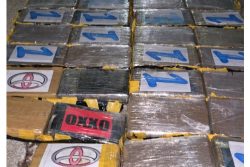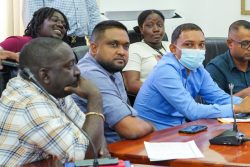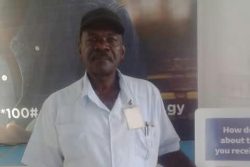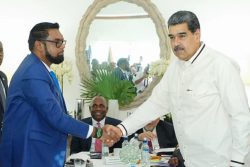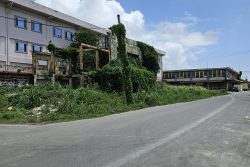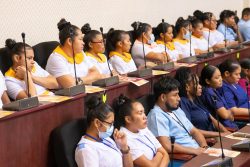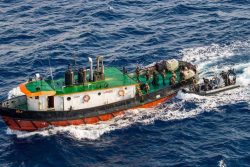CARACAS (Reuters) – Venezuela’s government said yesterday that vocal US critic Hugo Chavez played an influential behind-the-scenes role in securing the release of two Americans detained in Iran while hiking on the border in 2009.
The US pair — Josh Fattal and Shane Bauer — flew out of Iran this week after Oman paid bail of $1 million and various foreign leaders intervened on their behalf.
Venezuelan Deputy Foreign Minister Temir Porras told Reuters the Venezuelan president took up the case with the government of ally President Mahmoud Ahmadinejad after being alerted to the Americans’ plight by friends in US intellectual circles.
“He talks regularly with President Ahmadinejad. On the occasions he could, he requested it as a humanitarian, brotherly gesture,” Porras said.
“They (Fattal and Bauer) were in an unfortunate situation, wrapped up in geopolitical tensions that went beyond them.”
Iranian media quoted their Foreign Ministry as saying UN Secretary-General Ban Ki-moon, Chavez and the governments of Iraq and Oman had all intervened on behalf of the Americans.
The involvement of the fiercely “anti-imperialist” Chavez highlights his closeness to the Iranian government, which is a constant source of disquiet in Washington. It is not the first time Chavez has made humanitarian gestures on behalf of Americans, such as sending cheap fuel for low-income families.
Ahmadinejad is due to visit Venezuela after the UN General Assembly, although Chavez is still in Cuba after a fourth session of chemotherapy for his cancer treatment.
The normally flamboyant Venezuelan leader’s intervention on behalf of the two American detainees — who denied charges of spying — was deliberately low-key, Porras said.
“It shows a respectful, diplomatic, discreet move can have positive results for US citizens. That was not necessarily the attitude of the State Department and US authorities who demand and pressure in a rather arrogant way,” he said.
In Washington, a State Department official said: “We are relieved and happy that Josh and Sean are safe with their families” and had no further comment.
Chavez frequently accuses right-wing US politicians of demonizing ideological opponents like Iran and Venezuela, which are allies in the OPEC group of oil producers, as a pretext for aggressive moves like possible invasions.
“There are two possibilities: they are ill-informed people or ill-intentioned people,” Porras said of the persistent accusations that Venezuela and Iran are a menace to stability.
“Venezuela has always shown its peaceful nature.”
Eva Golinger, a Venezuelan-American lawyer who lives in Caracas and is a friend of Chavez, told Reuters she brought the American hikers’ case to his attention back in 2009 because she knew a friend of theirs.
“They have strong, progressive politics. I gave my word to Chavez that they did not appear to be spies,” she said. “He was immediately open to doing something.”

